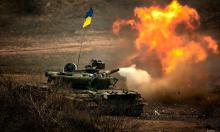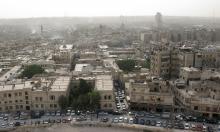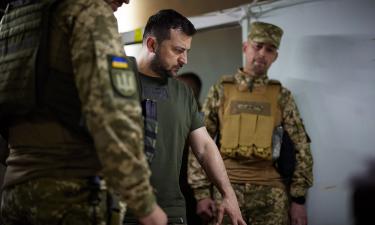NATO awaits details of Moscow's Azerbaijan anti-missile offer
NATO ministers Thursday considered the impact of Russia's offer to include an Azerbaijani radar base in the missile shield and assessed how the planned U.S. anti-missile bases in Europe could be integrated into the alliance's defenses.
The defense ministers will also seek to increase training for the Afghan military and examine how to reduce the rising toll of civilian casualties in Afghanistan. They are likely to discuss U.S. claims that Iran is helping arm Taliban insurgents fighting NATO's 36,000 strong military force there - a claim Afghanistan's defense minister played down Thursday.
Allied diplomats said the ministers would aim to start the planning that would lead to a decision next year whether the alliance develops its own anti-missile defenses. These would be "bolted on" to the U.S. shield to provide cover for all NATO nations from short- and long-range attacks.
"We must all be interested in building up protection for the population of Europe as a whole," said German Defense minister Franz Josef Jung, as he arrived for the two-day meeting.
The U.S. says its proposal to install 10 anti-missile interceptors in Poland and a radar unit in the Czech Republic would protect most of Europe from the threat of long- range attack from Iran or elsewhere in the Middle East. But it would leave Turkey, Greece and parts of the Balkans exposed.
The proposed NATO short-range defenses would aim to fill the gap.
Russia has reacted furiously to the U.S. plans, threatening to retaliate by pulling out of a key arms control treaty and point warheads at Europe for the first time since the Cold War. However, at the G-8 summit last week, President Vladimir Putin seemed to take a more open approach, suggesting Russia could cooperate with the West on an anti-missile radar base in Azerbaijan.
"I will certainly underscore our interest in exploring with them President Putin's proposal with respect to radar in Azerbaijan," U.S. Defense Secretary Robert Gates said Wednesday on his way to the NATO meeting.
During a stop in Germany, Gates added he was "very pleased that President Putin acknowledged that there is merit to missile defense, that Iran does represent a problem that needs to be dealt with in terms of potential missile defense."
NATO ministers will seek more details of the Russian proposal from their Russian counterpart, Anatoly Serdyukov. But alliance experts said complex technical issues meant it was too early to say if the Azerbaijani radar could effectively replace or supplement planned U.S. installations in central Europe.
"The trouble with missile defense is that it is rocket science," said John Colston, NATO's assistant secretary-general for defense policy.
The NATO ministers are due to meet their Afghan counterpart on the second day of talks Friday.
Before the meeting, Afghan Defense Minister Abdul Rahim Wardak on Thursday played down claims by a top U.S. State Department official that there was "irrefutable evidence" that the Iranian government was providing arms to Taliban rebels.
"There has been evidence of weapons, but it is difficult to link it to Iran. (They) might be from al-Qaida, from the drug mafia or from other sources," Wardak said.
Gates was expected to press allies to step up training efforts for Afghan security forces. The U.S. wants to double the approximately 20 teams of NATO training experts embedded with Afghan fighting units.
Allies are likely to raise concerns about the growing number of civilian casualties killed in incidents involving international troops in Afghanistan.
Worried that civilian fatalities are undermining support for the mission among Afghans and in European public opinion, Secretary-General Jaap de Hoop Scheffer wants to improve coordination between NATO troops and local authorities, speed up investigations into fatal incidents and offer speedy compensation when civilians are caught in the fighting.
Subscribe to Pravda.Ru Telegram channel, Facebook, RSS!





